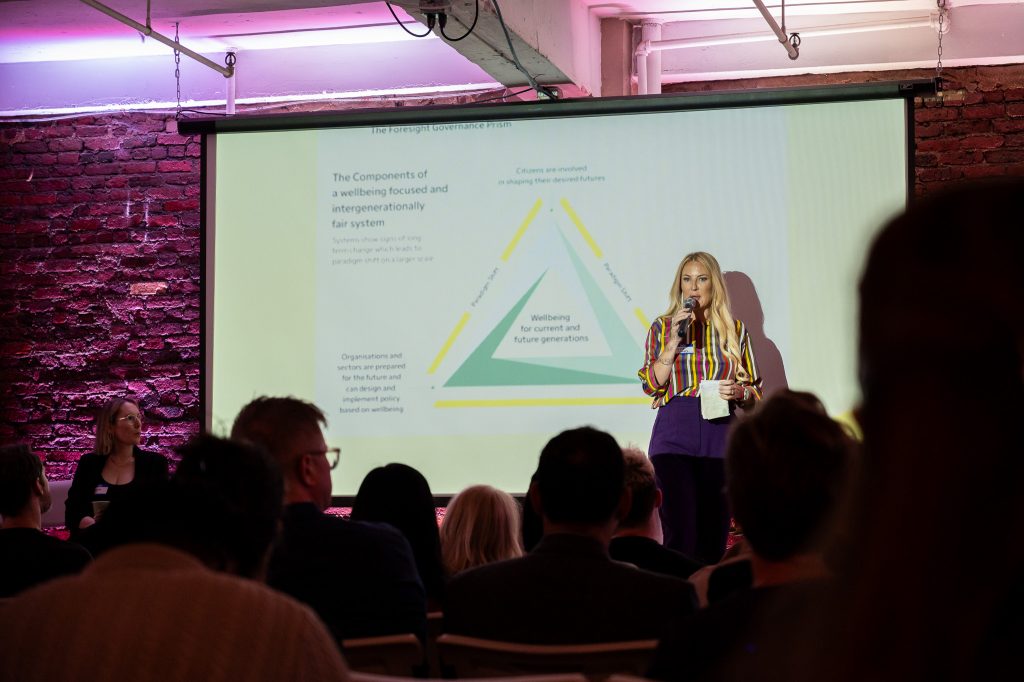
Sophie Howe, SOIF’s Governance Adviser and the First Future Generations Commissioner, reflects on 10 years of Wales’ Future Generations Act.
Sophie writes: Establishing a future generations act in Wales was a long-term process. It began with:
- A clause in the Government Wales act which established the Welsh Parliament in 1999 stating that ‘sustainable development should be a central organising principle of the government’;
- The emergence of prominent political champions, and
- The engagement of civil society, who were agitating for the government to make better long-term decisions.
The eventual commitment to the Act also seized a political moment. Wales wanted to demonstrate that 10 years after devolution it had the ability to do things differently from the British government in Westminster, and pass different and progressive legislation.
The role of the Commissioner was originally to be an advisory one, but during the passage of the bill in the Welsh parliament, the Senedd, more powers were added. The Commissioner could now monitor and assess progress being made against Wales’ long-term goals (established by the legislation) and gained the ability to undertake reviews of the decisions or approaches of particular public bodies.
Wales had experience of Commissioners in different areas of public life, and they had used different approaches in terms of working alongside government or in a more challenging way, with different degrees of success.
But the role of the Future Generations Commissioner was quite different, because it did not have a natural constituency. It was the voice of the unborn, and it intersected with all policy areas across Wales affecting both people currently living in Wales, and those yet to be born.
The Commissioner was to take a helicopter view across government policy, and different ministries, and of public sector delivery from the national level to the local level and everything in between. The scope and breadth of the role was challenging: there were many decisions that I knew as Commissioner I did not have the resources or the capacity to intervene in.
Alongside this were the challenges of unpicking old systems and ways of working, short term budget performance measures, and the demands of politicians who, though committed to the long-term, still needed to respond to the ever-increasing list of current problems and crises.
In practice, the Future Generations Commissioner became a systems convener, a connector between different timelines, policy areas, government bodies and sectors—and a constructive disruptor bringing new ideas and ways of working.
The areas that we did prioritise saw significant change, sometimes reflected in new policies and strategies. Some of this has been transformational. Transport policy now prioritises decarbonisation and healthy and connected communities, and has resulted in a shift away from building roads to investing in public transport.
A new school curriculum now seeks to equip young people with future focused skills, and is supported by changes to the examination system.
The increased certainty arising from a government committing to long term goals, which go beyond election cycles, has also led to increased business activity in areas which align with our goals. Wales has climbed from eleventh to third in the ranking of UK regions for the number of green jobs created.
It is a positive story, but it is still only the beginning of the story. Embedding this revolutionary way of working is truly a long term mission, and one that now extends internationally, way beyond the borders of one small European country.
Countries around the world are taking inspiration from Wales. The Implementation Handbook for the UN Declaration on Future Generations offers a practical roadmap for policymakers and civil society to embed long-term governance principles. Read here.
